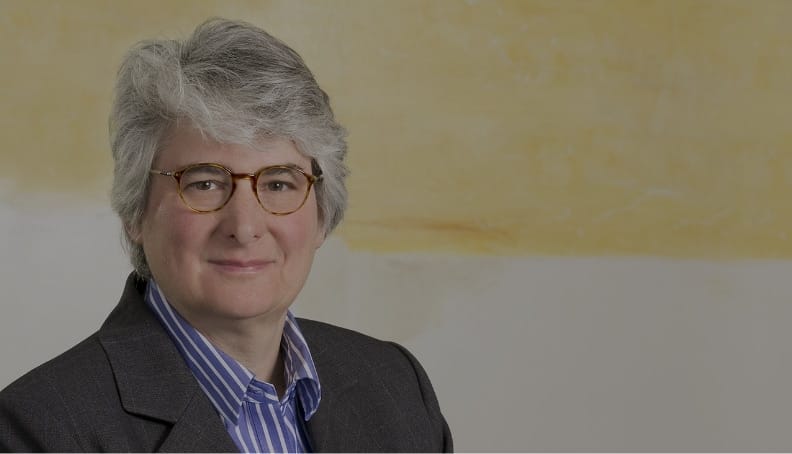
Diligent Divorce Lawyers Serving Redwood City, CA
At The Schoenberg Family Law Group, P.C., we know that considering a divorce or receiving a divorce petition is a complicated and stressful situation. Our firm will help by providing you with experienced and determined divorce attorneys to answer your questions and represent your best interests. Our Redwood City divorce attorney offers quality legal representation to guide you through every aspect of your divorce, including but not limited to:
- Child custody;
- Visitation and parenting time;
- Child support;
- Division of marital property;
- Division of marital debts;
- Mediation;
- Temporary orders; and
- Spousal support.
The divorce process can be frustrating and lengthy, and unforeseen problems can arise. Allow the professionals at The Schoenberg Family Law Group, P.C., to advance your understanding of divorce and move you towards a fresh start.
Grounds for Divorce in Redwood City, California
California is a “no-fault” divorce state. In other words, the spouse asking for a divorce does not have to prove the other spouse did something wrong.
The spouse filing for divorce usually does so because of “irreconcilable differences,” or the inability to get along. Since California is a no-fault divorce state, the court does not punish either party for any type of wrongdoing in the marriage, like an affair.
The spouse who files the original paperwork is called the “Petitioner,” and the spouse who receives that paperwork is the “Respondent.” There is no legal advantage to being either the Petitioner or the Respondent, but filing first may have a strategic advantage.
There is a six-month waiting period after filing before a court will grant a final divorce. However, most divorces take longer than six months to complete. Even if a divorce is settled early, a court will not issue a final divorce until the six-month waiting period has passed.
Until a court grants a final divorce, one cannot remarry or file taxes separately.
Debra and team were so helpful and supportive through the most difficult time in my life. Grateful to the team for their advice – would highly recommend their services to anyone needing a divorce attorney.
Requirements for Divorce in California
To obtain a divorce in California, one spouse must meet California’s residency requirements. These are as follows:
- One spouse must live in California for the last six months; and
- One spouse must live in the county where divorce is planned for the previous three months; however,
- If both spouses live in California for at least six months, but in different counties for at least three months, filing is allowed in either county.
There is an exception for filing a legal separation. It is permissible to file and amend a petition for legal separation into a divorce petition once the spouse meets the residency requirement.
There is also an exception for same-sex couples. Those who married in California but live in a state that does not recognize same-sex marriage can file a divorce in the California county where they married.
The Divorce Petition and Response in Redwood City
The divorce process begins when one spouse files a Petition with the court. Upon receiving the Petition, the Respondent has 30 days to file a Response to the facts outlined in the Petition. Once the Respondent files an Answer, there may be a hearing for the case.
California requires mediation when a couple has children. Mediation must take place before the first court hearing. Failure to appear at custody mediation may result in court-ordered fines or sanctions.
What Is the Purpose of Mediation?
Mediation in a divorce case is a meeting involving both spouses, their attorneys (if applicable) and a mediator. A mediator is an unbiased third party who typically has some training in conflict resolution, such as a retired judge or a lawyer who does not work for either spouse. The mediator is present to help the parties communicate and reach a mutually satisfactory settlement for the divorce case. The mediator cannot give a binding order at the end of mediation. He or she is simply there to facilitate communication and compromises to resolve the dispute.
The purpose of divorce mediation is to get the parties to reach a mutual agreement that works for both of them. In a divorce case, the goal is to achieve a divorce settlement that is not contested by either party – allowing them to avoid a trial. A divorce settlement must have solutions for all issues in a divorce case, including property and debt division, child custody and visitation, child support, and spousal support. It is easier to reach a divorce settlement with assistance from a mediator, who can talk through issues in a way that you might not have if resolving the dispute yourself and find creative solutions.
Mediation can make a divorce case more civil and productive. During mediation, the mediator will put each party in a separate room after initial introductions are made. Then, the mediator will communicate independently with each party to make it easier for the couple to reach an agreement. Mediation can prevent altercations and animosity that often occur in face-to-face meetings, making for a more productive conversation. At the end of mediation, it is up to the couple if they want to sign a settlement agreement or continue with divorce negotiations.
Redwood City Property and Debt Division
In California, parties equally share community property and debt. However, parties can agree to an unequal division of property and debt provided they agree to the division.
There is no need to split property and debt down the middle. Trade-offs are permissible. Assets and debts can remain whole with the parties, each taking an approximately equal dollar amount of each.
It is important to note that community debt assumed by one party may still become the responsibility of the other if the liable party defaults.
If the parties reach a property and debt division agreement, one of their attorneys prepares a Marital Settlement Agreement. Both parties sign this, and their attorneys then present the agreement to a judge. Once approved by a judge, the divorce is final.
If the parties have children and reach a child custody and support agreement, the judge is given a Marital Settlement Agreement for approval. If all of the parties’ marital issues resolve, neither party may need to make a court appearance.
If the parties are unable to reach an agreement regarding any marital or child custody issues, there is a trial before a judge. The judge will hear testimony and review evidence regarding any unresolved matters and issue orders the parties must follow.
What Happens When a Divorce Does Not Reach an Agreement?
Some couples cannot reach divorce settlement agreements, even after weeks or months of negotiation, mediation and arbitration. If you have a high-conflict divorce and you and your spouse cannot reach an agreement, the next step in your divorce case is a trial before a family court judge in Redwood City. A divorce trial comes with specific steps that you and your divorce attorney will need to navigate:
- Disclosures. Both you and your spouse will need to submit financial disclosure forms and final declarations before your trial to aid with asset and property division.
- Discovery. The discovery phase is where you and your spouse will learn everything you can about the other side of the case. Discovery typically involves requests for the production of documents, interrogatories and depositions.
- Trial. The divorce trial itself will start with opening statements from the attorneys of both spouses. Then, both sides of the case will have time to present evidence and witness testimony. The case will end with closing arguments.
- Judgment. At the conclusion of the trial, the judge will issue a divorce decree with orders for both spouses. These orders will determine matters such as child custody, child support and alimony. They are final and non-negotiable.
- Post-judgment issues. Some divorce cases involve further issues after the judgment has been delivered, such as one spouse attempting to modify an order or change a will. These are issues that a family law attorney can help you with after your divorce.
Keep in mind that you can settle your divorce case at any time until the first day of your trial. A settlement is easier, cheaper and less risky than a divorce trial. With assistance from a lawyer, you can improve your chances of reaching a satisfactory settlement agreement with your spouse and avoiding a divorce trial. If your case does go to court, a divorce lawyer can be invaluable as your representation throughout the trial process.
Steps to Take Before a Divorce in Redwood City
There are steps to take before an adversarial divorce to help ensure a more positive future for yourself and your children.
- Hire an attorney as soon as possible;
- Stay in your home if you have children;
- Do not conceal or move the children;
- Remove PERSONAL records/property from the marital home;
- Make copies of joint records and remove them from the home;
- Catalog all marital property on video with a date stamp;
- Keep a journal of day-to-day spousal interactions;
- Do not sign any documents without consulting an attorney; and
- Call the police and make a report if there is domestic violence.
Contact Our Redwood City Divorce Lawyers Today
At The Schoenberg Family Law Group, P.C., we will assist and guide you through each stage of your divorce proceedings. Our Redwood City family law attorneys are compassionate and provide the skill and strength you need to proceed confidently through your divorce.
We will fiercely advocate for a fair, equitable outcome tailored to meet your interests. Let our dedicated legal team serve you and prove the difference that experience and professionalism make in your divorce.


